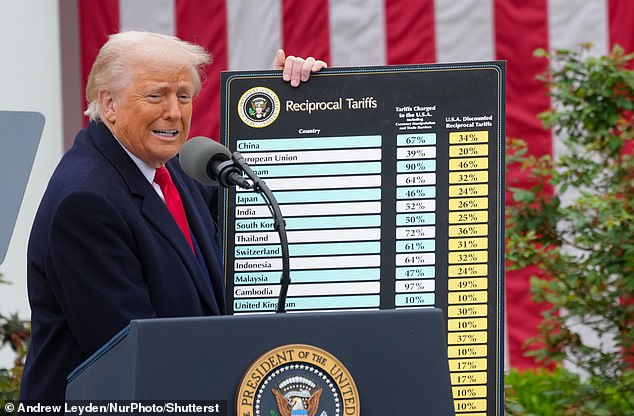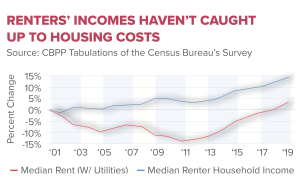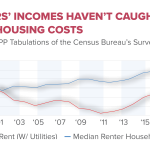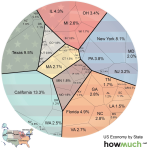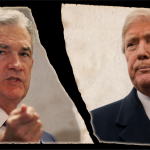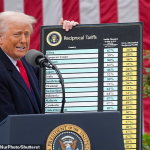Tariffs play a pivotal role in shaping the U.S. economy, influencing trade dynamics and impacting American workers. Senator Rick Scott has recently defended the use of tariffs as a strategic tool to not only protect U.S. industries but also to encourage fair competition on the global stage. By promoting a robust tariff strategy, Scott believes that it can level the playing field, particularly against rivals like China, whose competitive practices have raised concerns among American policymakers. This dialogue on trade policy is more critical than ever as countries around the world reassess their relationships with the United States and the implications of tariffs on economic growth. The recent announcements of tariffs on various imports signify a shift towards a more protectionist approach, aiming to bolster domestic production and stabilize the economy.
Import duties, commonly known as tariffs, have become a major focal point in discussions regarding international commerce and domestic economic strategies. These financial levies, especially those targeting imports from countries like China, are leveraged by lawmakers like Senator Rick Scott to encourage equitable trade practices. As the debate over trade agreements intensifies, the underlying trade policies that govern these tariffs are scrutinized for their effects on the U.S. economy. With an increasing emphasis on manufacturing and job security, the impact of such fiscal measures continues to resonate within the broader context of economic recovery and globalization. Understanding the implications of these duties is essential for grasping the challenges and opportunities that lie ahead in American trade relations.
Understanding Rick Scott’s View on Tariffs
Senator Rick Scott has been a vocal advocate for the tariff policies implemented during the Trump administration. He argues that these tariffs are critical in leveling the playing field for American workers and companies, asserting that they can help boost U.S. manufacturing and reduce trade deficits. By imposing tariffs, Scott believes the U.S. can push other nations, particularly those with higher barriers to American products, to lower their own tariffs, allowing American businesses to be more competitive globally. Scott maintains that his fundamental goal is to empower the American worker and facilitate the increase of U.S. exports.
Moreover, Scott’s tariff strategy includes a strong focus on the need to address the economic threat posed by China. He expresses concerns that China’s economic expansion could undermine U.S. interests, emphasizing a firm stance against trading practices that disadvantage American workers. According to Scott, negotiating with countries that impose tariffs on U.S. goods, if not handled properly, could surrender competitive advantages, thus his belief in a robust tariff approach as a deterrent.
Impact of Tariffs on the U.S. Economy
The essence of Rick Scott’s argument is that tariffs can serve as an effective tool in reshaping U.S. trade policy. He cites the recent actions of the government, which imposed sweeping tariffs on many nations, as necessary steps toward protecting American jobs and industries. However, the imposition of these tariffs has been met with mixed reactions—while some see them as a solution to trade imbalances, others, including economists like Jason Furman, argue that they could lead to negative repercussions for the U.S. economy, including inflation and a downturn in consumer spending.
Scott remains steadfast, arguing that the long-term benefits of tariffs will outweigh the immediate consequences. He claims that tariffs might temporarily disrupt markets, but in the grand scheme, they could lead to a more sustainable economic environment where American producers thrive. His belief is that by minimizing barriers, American goods can become more accessible, not just domestically but also globally—an assertion that marks a paradigm shift in traditional economic policies.
The Debate on Tariffs and Economic Downturn
The conversation surrounding tariffs is multifaceted and contentious, especially when discussing their role in potential economic downturns. Rick Scott has posited that tariffs are essential to protect American workers, yet they have catalyzed concerns about a recession, particularly as the stock market has seen significant volatility due to these trade policies. Furman has highlighted that the unilateral imposition of tariffs may have triggered fears that led to a sharp decline in economic activity, indicating that a more diplomatic approach to trade could be beneficial in maintaining market stability.
Despite the warnings, Scott believes that the situation can be salvaged by focusing on strengthening U.S. manufacturing through tariffs. He argues that the ultimate goal is to create an environment where American products are in higher demand, both at home and abroad. The core of Scott’s argument rests on the notion that a strong tariff strategy will empower consumers to support domestic products, thereby driving economic growth, reducing reliance on foreign countries, and stabilizing the American economy.
China: The Epicenter of Trade Concerns
Senator Scott has been particularly vocal about the challenges posed by China, labeling it as the most pressing competitor to the U.S. economy. He contends that the imposition of tariffs, particularly a staggering 145% on Chinese imports, is vital to counteract China’s unfair trade practices that he believes harm American interests. Scott’s approach calls for stringent measures against nations that impose significant barriers to U.S. goods, with a specific emphasis on China, viewing it as a critical area for intervention to protect U.S. economic integrity.
Scott’s assertion that “we should do no trade with China” resonates with a segment of the U.S. population that fears the consequences of excessive trade relations with countries that do not share the same fundamental economic values. This perspective echoes a broader sentiment advocating for a reevaluation of trade agreements, particularly with nations that challenge U.S. economic sovereignty. For Scott, the stakes are high; he believes that the only way to ensure peace with China is through economic measures that cripple its ability to compete on the global stage.
The Impact of Tariffs on Inflation
One of the pressing questions regarding tariffs is their potential impact on inflation rates. Scott has expressed uncertainty over how tariffs may influence inflation, suggesting that a balanced federal budget is vital to controlling inflation. There’s a dichotomy of opinions on whether tariffs will exacerbate inflation or lead to economic stabilization as the government’s policies begin to shape consumer behavior and spending patterns.
Economists warn that while safeguarding American industries is essential, the added costs of tariffs could be passed on to consumers, elevating prices on a wide range of goods. Therefore, the need for a cautious approach to implementing tariffs is paramount to avoid unintended consequences in the cost of living for American households, which could compromise the benefits that the tariffs seek to achieve.
Negotiating Trade vs. Imposing Tariffs
Scott’s preference for tariffs over negotiations with trading partners highlights a significant departure from traditional trade diplomacy. Critics like Jason Furman argue for the merits of negotiation, suggesting that a cooperative approach could foster more sustainable trade relationships, while simultaneously avoiding the volatility seen in global markets. This strategy, they claim, could lead to mutually beneficial agreements rather than the combative posture represented by unilateral tariffs.
By positioning himself firmly in favor of tariffs, Scott champions a more aggressive stance that focuses on immediate benefits for American workers. His reluctance to engage in extensive negotiations suggests a belief that direct action is necessary to enforce changes in trade policy and push other nations to adopt fairer practices. This reflects a broader trend where certain elements of U.S. trade policy are being driven by the need to protect domestic industries at all costs.
Rick Scott’s Economic Strategy Moving Forward
As the conversation around tariffs evolves, Scott’s vision for the American economy involves not just the continuation of tariffs but a comprehensive approach to economic policy that includes reducing national debt and fostering trade competitiveness. He emphasizes the necessity of a balanced budget as a fundamental aspect of long-term economic health, suggesting that fiscal responsibility is key to achieving the goals associated with his tariff policies.
Scott’s strategy reflects a desire to maintain economic strength while addressing fiscal concerns, but the challenge lies in harmonizing these objectives with the complex realities of the global economy. His bold proposals might appeal to those prioritizing American jobs, yet they necessitate a careful balance to ensure that they do not provoke retaliatory measures that could further complicate trade dynamics.
The Future of U.S. Trade Policy under Tariffs
The future trajectory of U.S. trade policy, particularly regarding tariffs, remains an open question, yet Rick Scott’s advocacy plays a significant role in shaping this discourse. With ongoing debates about the effectiveness and long-term consequences of tariff strategies, Scott’s influence is indicative of a broader shift in how trade relations are approached in the current political landscape. This advocacy could potentially redefine America’s role in international trade.
As policymakers grapple with the legacy of tariffs and their impact on the U.S. economy, Scott’s perspective will likely continue to provoke discussion about the balance between protectionism and open trade. The implications of such policies extend far beyond economic statistics—encompassing local employment, consumer prices, and the overall health of the economy. Continuous evaluation and adjustment will be imperative as the effects of current tariff policies begin to reveal themselves.
Frequently Asked Questions
What are Rick Scott’s views on tariffs and their impact on the U.S. economy?
Rick Scott argues that tariffs, particularly those imposed during the Trump administration, will help level the playing field for American workers. He believes these tariffs will boost sales for U.S. manufacturers by reducing foreign competition and pressuring other nations to lower their own tariffs. However, many economists are concerned that these tariffs could ultimately harm the U.S. economy.
How do China tariffs affect trade relations between the U.S. and China?
China tariffs have significantly strained trade relations between the U.S. and China. Currently, the U.S. imposes a 145 percent tariff on Chinese imports, while China retaliates with a 125 percent tariff on U.S. goods. Rick Scott advocates for eliminating trade with China altogether, arguing that this approach would prevent potential conflicts and economic imbalances.
Can tariffs improve the U.S. manufacturing sector?
Rick Scott believes that tariffs can assist U.S. manufacturers by reducing competition from foreign markets. He asserts that the tariff strategy will enable American workers to sell more products without the barriers imposed by other nations. However, the effectiveness of this approach in truly enhancing the manufacturing sector remains a topic of debate among economists.
What is the potential impact of tariffs on inflation?
While Rick Scott acknowledges uncertainty regarding the impact of tariffs on inflation, he suggests that controlling inflation will depend more on balancing the national budget. His stance indicates a belief that while tariffs may have effects on prices, fiscal responsibility is crucial for long-term economic stability.
What is the rationale behind the Trump administration’s tariff strategy?
The Trump administration’s tariff strategy, as defended by Rick Scott, aims to compel countries to reduce their tariffs on American products and rectify trade deficits. Scott asserts that this approach prioritizes the American worker and seeks to promote fair trade practices, despite facing criticism that it may lead to economic downturns.
How do tariffs relate to U.S. trade policy?
Tariffs are a central component of U.S. trade policy, particularly under the recent administrations. They serve as tools intended to protect domestic industries from foreign competition and influence international trade balances. Senator Rick Scott supports tariffs as a necessary measure to reshape U.S. trade policy and strengthen economic positioning against competitors such as China.
What are the criticisms regarding tariffs and the U.S. economy?
Critics, including economists like Jason Furman, warn that the implementation of tariffs could lead to substantial economic harm rather than benefits. They argue that tariffs may contribute to inflation, increased prices for consumers, and overall economic instability, contradicting the intended goal of supporting U.S. workers and manufacturers.
What role do tariffs play in addressing trade deficits?
Tariffs are viewed by Senator Rick Scott as a means to help close trade deficits by making foreign goods more expensive, thus encouraging consumers to buy American-made products. The underlying belief is that this shift will benefit U.S. manufacturers and promote domestic economic growth, although the effectiveness of tariffs in achieving these goals is contested.
| Key Point | Details |
|---|---|
| Rick Scott’s View | Senator Rick Scott supports tariffs as a means to benefit American workers and pressure other nations to reduce their own tariffs. |
| Impact on U.S. | The U.S. government recently announced tariffs which resulted in global market volatility and a significant economic downturn. |
| Trade with China | Scott believes there should be no trade with China, citing it as a significant threat to U.S. economic stability. |
| Economic Opinions | While Scott argues tariffs could help workers, many economists, including Jason Furman, warn they may hurt the U.S. economy. |
| Current Tariff Rates | Tariffs are set at 10% for most nations, but reach 145% for China, which has retaliated with its own high tariffs. |
| Concerns about Inflation | Scott expresses uncertainty about the tariffs’ effect on inflation, suggesting a balanced budget as a potential solution. |
Summary
Tariffs play a crucial role in shaping economic policies and discussions in the U.S. Senator Rick Scott emphasizes their potential to protect American workers and rectify trade imbalances, particularly against competitors like China. However, the effectiveness and repercussions of such tariffs remain hotly contested among economists, with concerns about domestic inflation and economic downturns being significant points of debate.
